Cyabra analyzed online conversations discussing climate change in the month preceding World Nature Conservation Day, and found that the fight against misinformation has become a significant part of the war against global warming.
World Nature Conservation Day is an annual event that takes place on July 28. Its purpose is to raise awareness of the preservation of a healthy environment and natural resources, and to the saving of plants and animals that nearing extinction.
While awareness of those topics has been quickly rising in the last decade, and global warming conferences are now being held regularly, it seems as though disinformation, misinformation and conspiracy theories revolving around those topics spread just as widely.
Bots and Sock Puppets Are (Surprisingly) Not the Problem
In the last ten years, we’ve witnessed public figures and politicians intentionally spread disinformation about climate change, claiming global warming to be unproven or just an outright lie. A common motivation behind these false claims is business relationships with one of the industries that might be affected by pro-environmental laws being passed. In the past, this practice has also led to bots and sock puppets spreading disinformation about global warming.
However, this was not the case here. Cyabra’s analysts found that most of the profiles that took part in the discourse were authentic – real people that seemingly believe climate change is a hoax.
Cyabra analyzed the exposure of the 10 main profiles that spread misinformation and found that their tweets and posts reached 2,200,715 profiles on social media in the last month. Below are some examples of those posts and tweets.
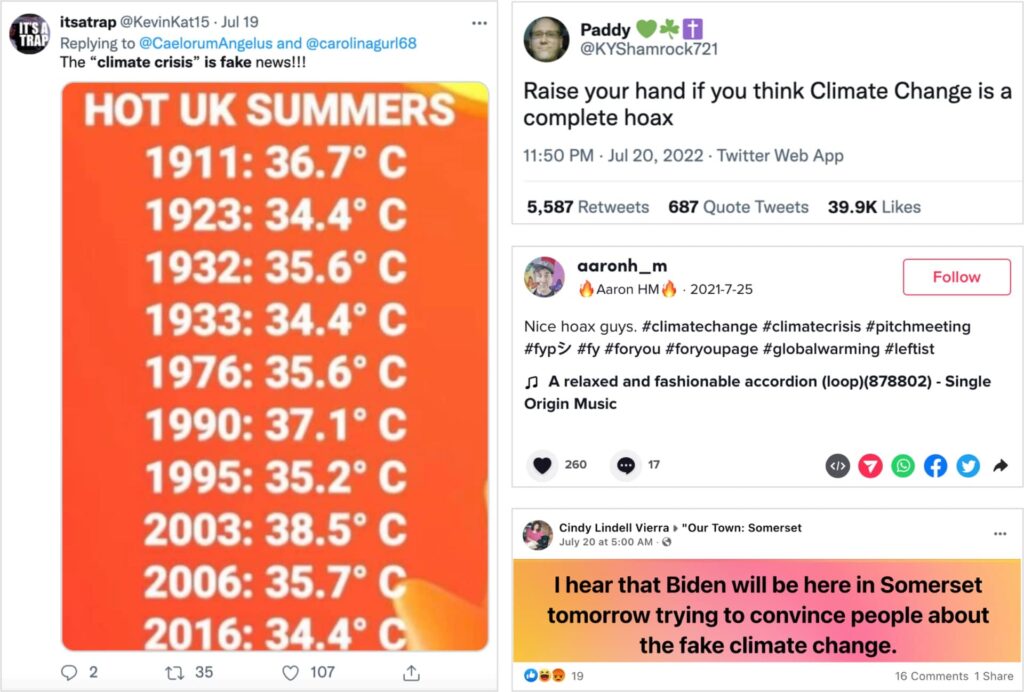
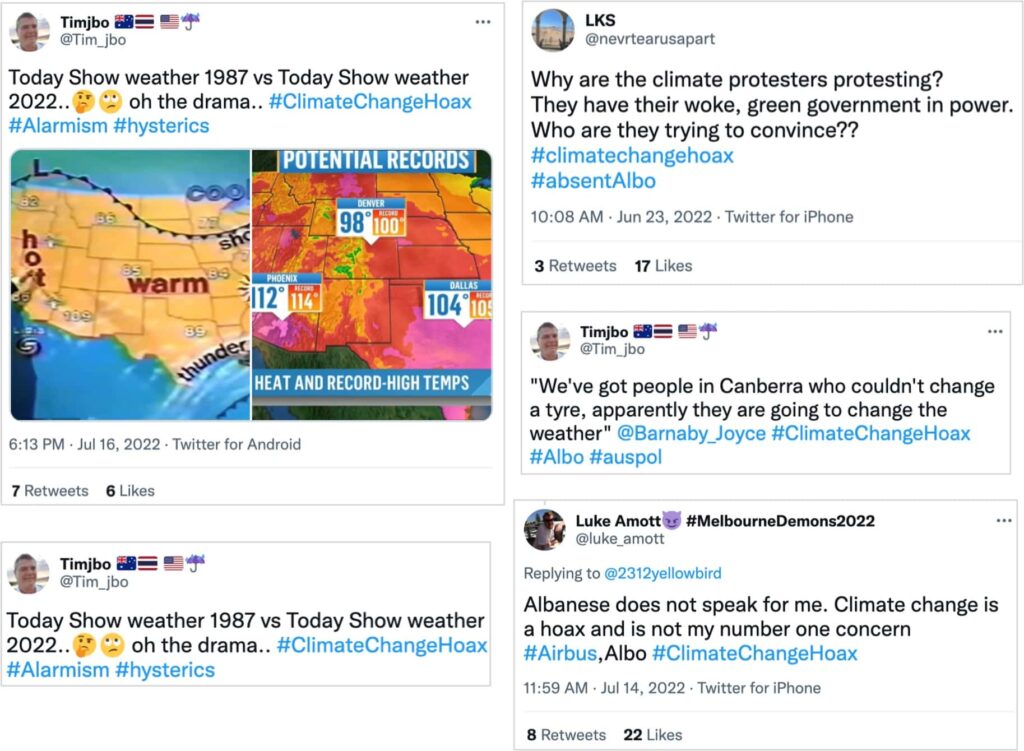
Climate Change, Flat Earth, Chemtrails, and Other “Hoaxes”
Popular hashtags in those conversations were #ClimateHysteria, #ClimateChangeHoax, #Climatehypocrisy and #Geoengineering (see full list below). Some of those posts were clearly written to sow fear, while others were intended to reduce the importance of the environmental issue.
But who are those people that persistently object to scientifically proven evidence of global warming? It might not shock anyone to learn that typically, these authentic users believe in more than one type of inauthentic information. Other topics that relate to conspiracy theories have also found themselves in the mix, including “Chemtrails” and “Flat Earth”, and claims of the Covid-19 pandemic being fake.
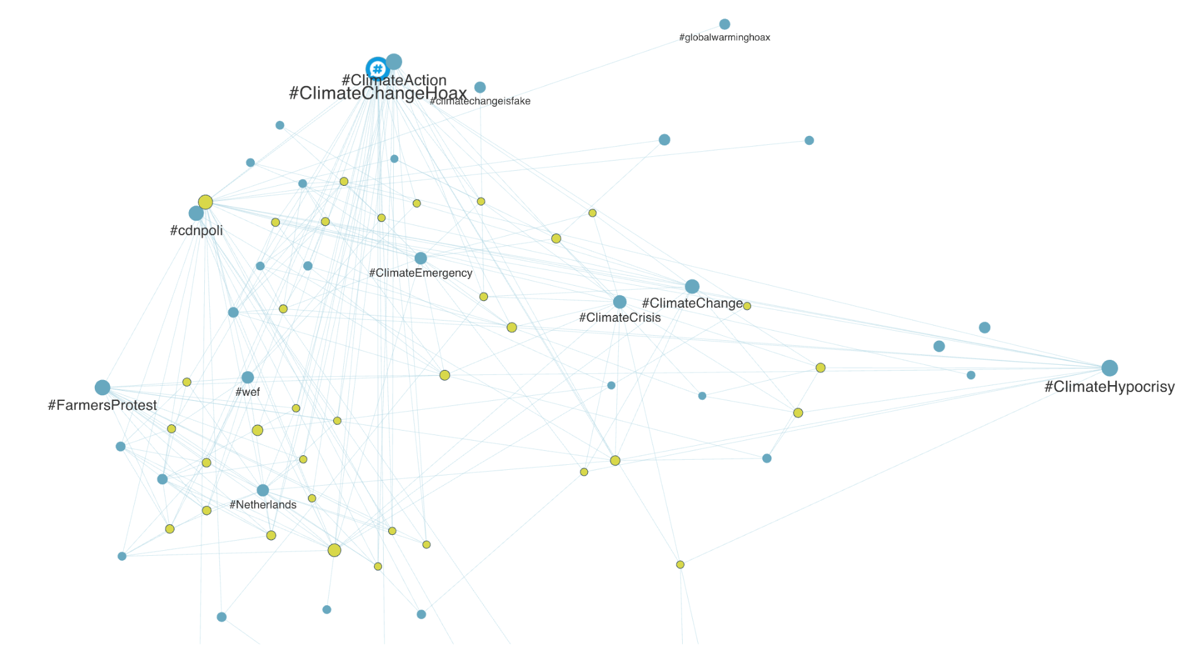
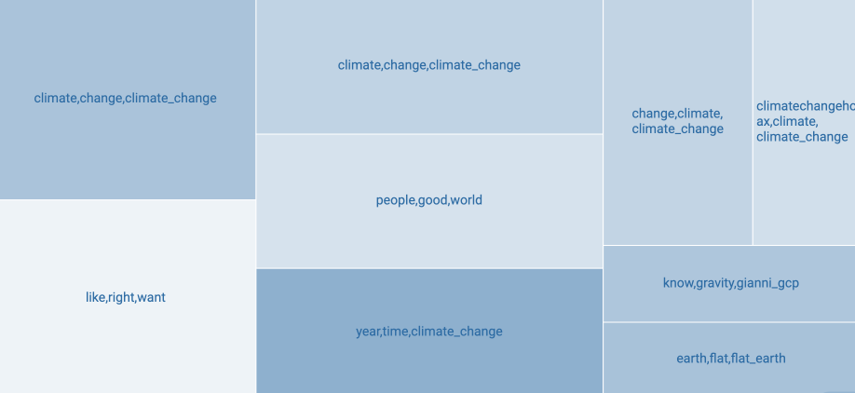
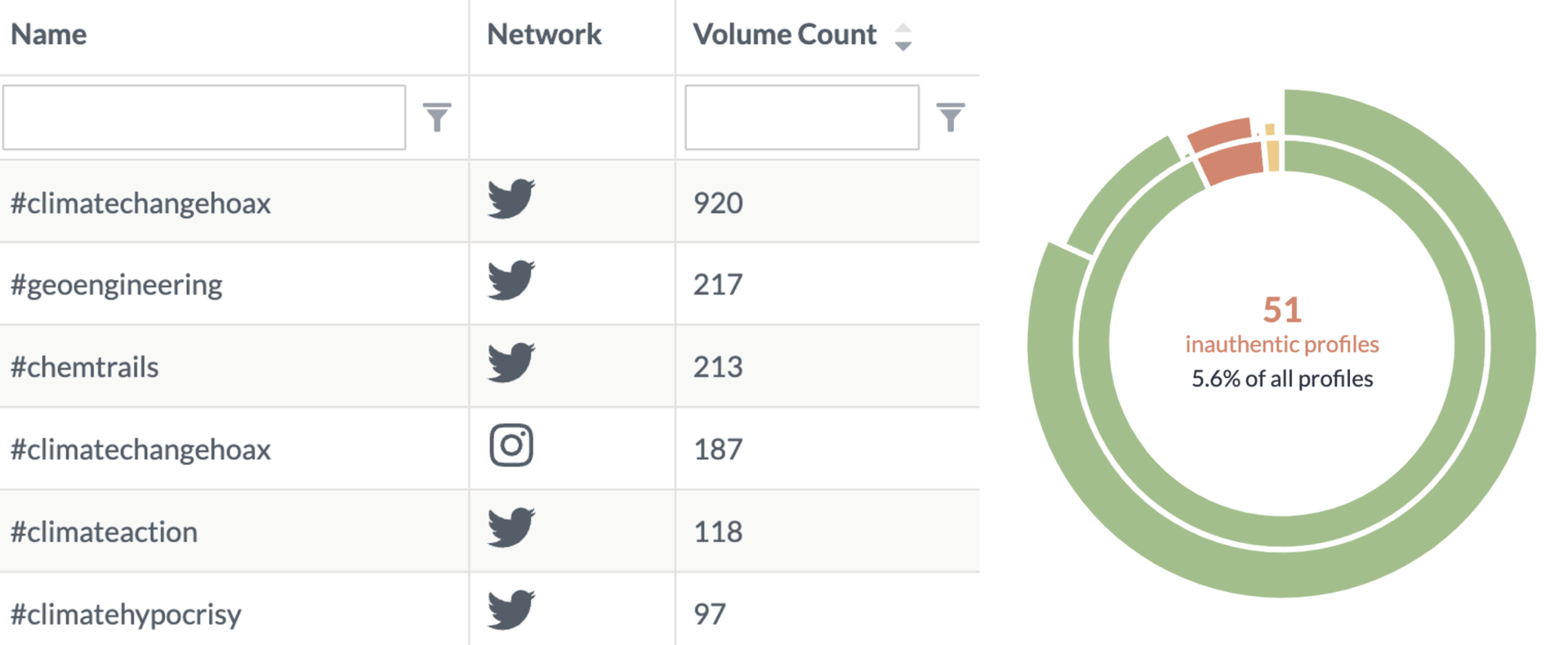
Misinformation Around the Clock
By analyzing the periods of times in which conversations took place, Cyabra’s platform found clear evidence of authentic activity: social conversations regarding climate change took course in all hours of the day and in many locations around the globe (yes, we said it, globe!), mainly in the US and in Europe. This might seem logical and even obvious considering the nature of this topic and its relevance to the entire world, but often enough, topics that are widely discussed by inauthentic profiles show a major rise in activity during specific, distinct hours.
Cyabra’s analysis scanned 3,000 profiles that tweeted, posted, shared or commented about climate change 4,381 times. A high number of mentions regarding Climate Change was observed in late July on Twitter, and a similar peak took place on Facebook around the same time. On Instagram and TikTok a record number of mentions was observed at the end of June and the beginning of July.
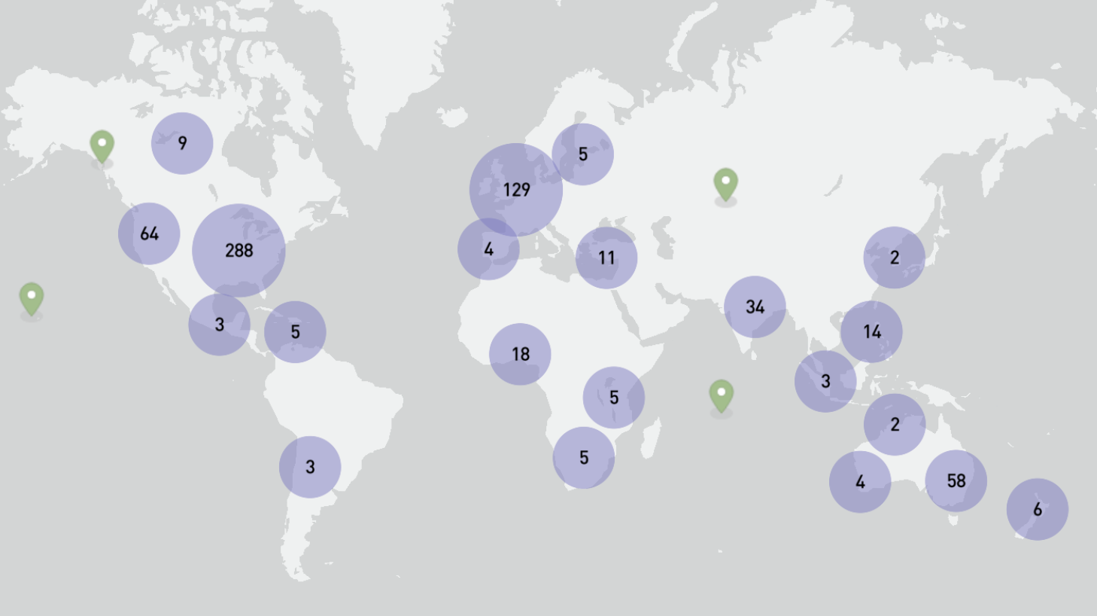
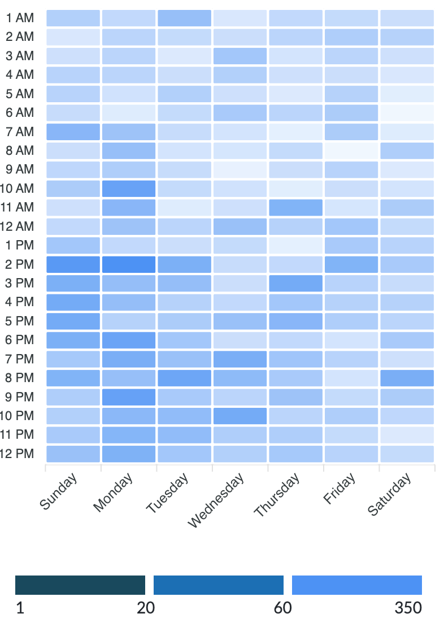
This wave of misinformation didn’t start around Nature Conservation Day. It started much earlier. Cyabra analyzed conversations that took place over a period of two months last January. Our AI scanned over 78K profiles and analyzed the authenticity of 15K profiles on Twitter, Facebook, Instagram, and TikTok. The hashtags, topics and general spread of misinformation was quite the same, proving that climate change misinformation spreads side by side with the rising awareness of this topic, and just as widely.
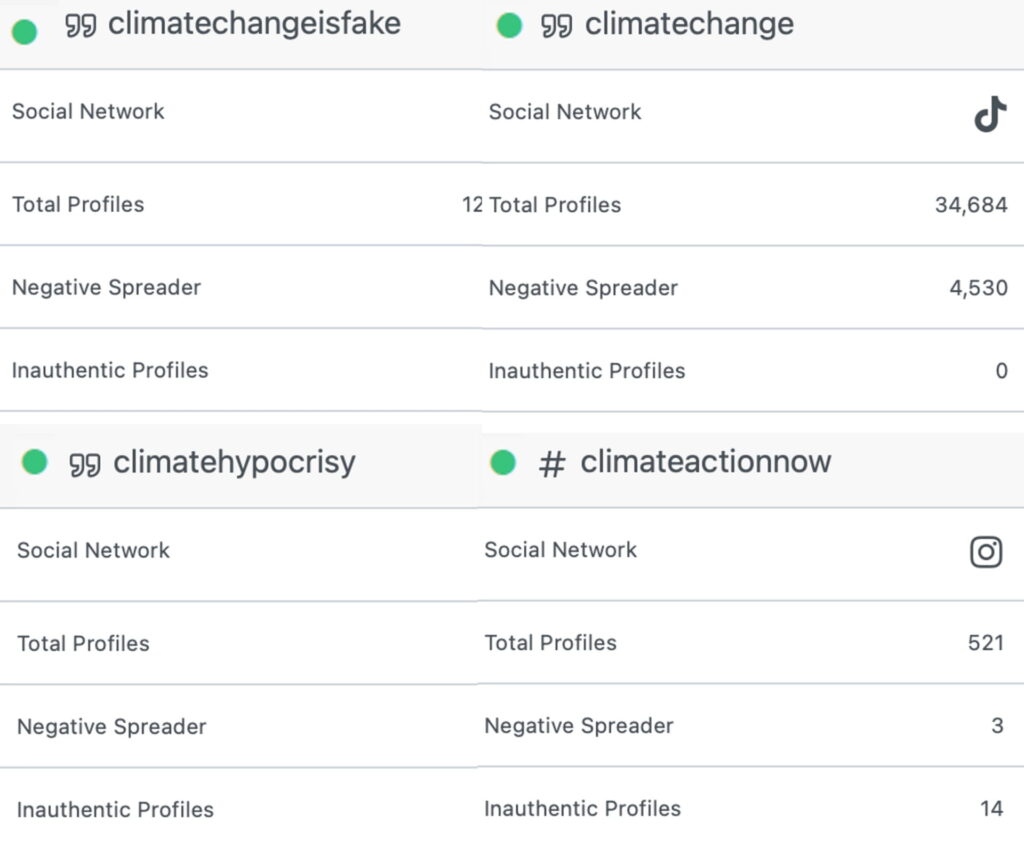
Can We Expect the Public to Sift Through Endless Misinformation?
While world leaders, NATO, the UN, the European Union, environmental organizations like Greenpeace, WWF and many others plow away in a tireless effort of educating the public in the admittedly many possible ways to preserve and conserve the environment – from recycling to reducing meat consumption, from buying local goods to installing energy saving devices in your home, from using eco-friendly vehicles to water saving, the invisible fight against disinformation and misinformation is often pushed aside. This Nature Conservation Day, in addition to any climate-friendly action you’ll be taking, consider your personal means of fighting misinformation. Feel free to share this post, or any other authentic information about climate change and global warming.
Environmental Organization? We Want to Help.
Cyabra is committed to uncovering the good, bad and fake of social media. We offer environmental organizations (nonprofit or otherwise) free data analysis of any topic that relates to global warming and climate change, and could help their followers reach authentic information.
Let us help you battle misinformation. Just like climate change, it’s a fight that concerns all of us. Contact us


